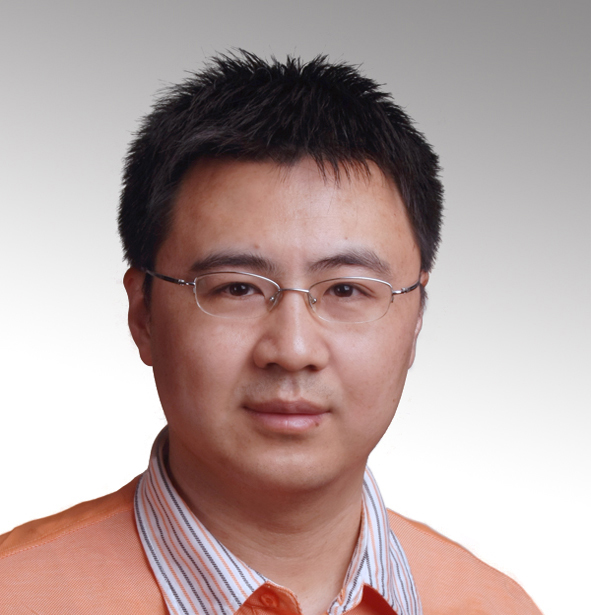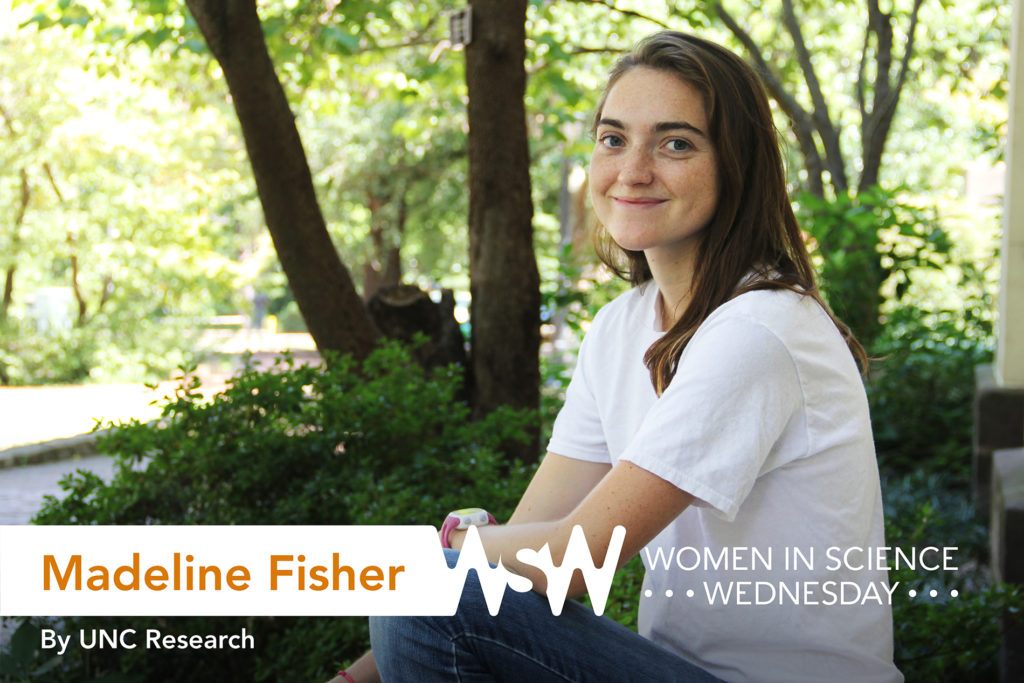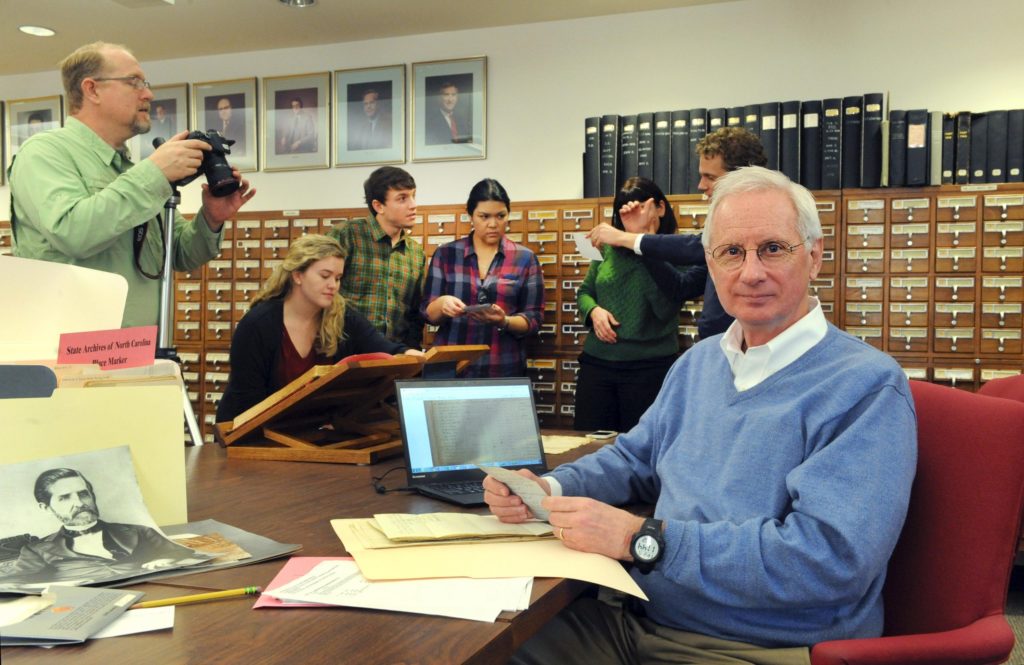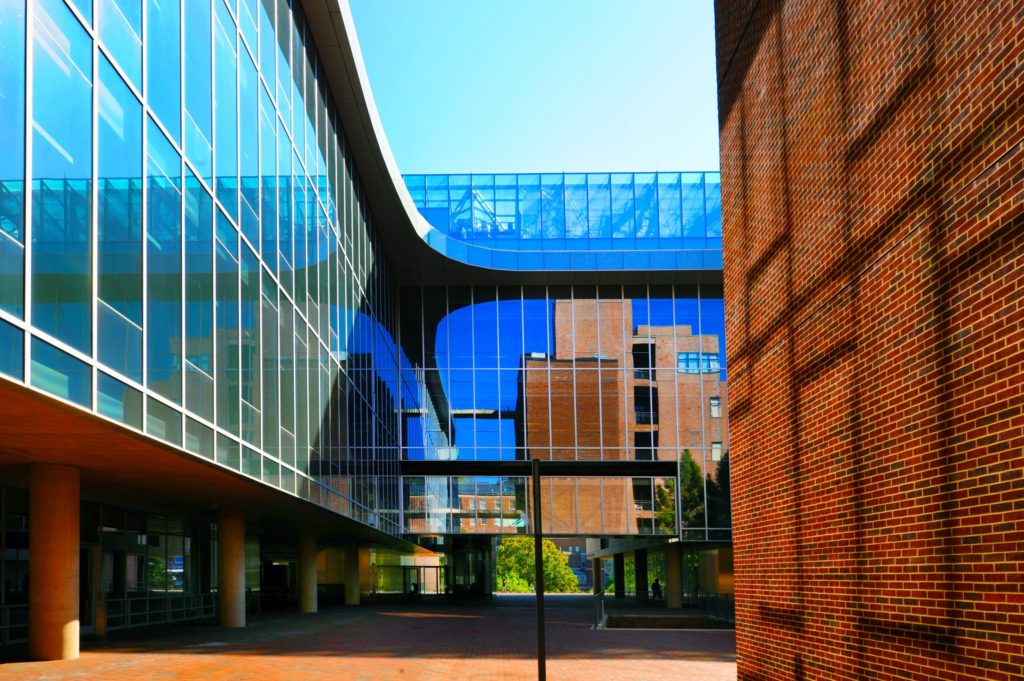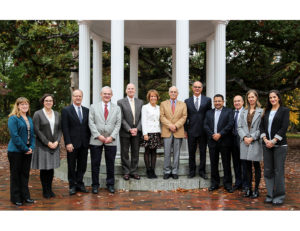
President Carlos Montúfar of the Universidad San Francisco de Quito in Ecuador visited UNC-Chapel Hill from Nov. 6 to 8 to join Chancellor Carol L. Folt in reaffirming their commitment to the UNC-USFQ partnership and to the institutions’ collaborative activities in the Galápagos Islands.
At a ceremony on Nov. 8, Folt and Montúfar signed an agreement to commit continued support and funding for the Galápagos Science Center (GSC), operated jointly by the universities on San Cristóbal Island in Ecuador. In addition, the two leaders executed a Letter of Intent with the Ecuadorian Ministry of Environment and the Galápagos National Park to explore collaboration on a bio-specimen bank for biological material collected from the Galápagos Islands.
The GSC is the only university research center in the Galápagos and provides a unique platform for UNC faculty and students to conduct research and study within a cherished UNESCO World Heritage Site. Stephen J. Walsh, Lyle V. Jones Distinguished Professor of Geography at UNC, and Carlos Mena, professor in the College of Biological and Environmental Sciences at USFQ, direct the GSC and lead the joint Galápagos Initiative.
During the visit, Montúfar was accompanied by Mena, along with Diego Quiroga, dean of research and external affairs; Claudia Tobar, director of the Institute of Teaching and Learning; and Alexandra Velasco, director of the Office of International Programs.
The delegation met with many of the faculty and staff who have been involved in the UNC-USFQ collaboration, including members of the Galápagos Science Center advisory board, and explored possibilities for research collaborations and student engagement with the Departments of Geography, Biology, Marine Sciences, and Anthropology, Curriculum in Environment and Ecology, Study Abroad Office, School of Nursing, School of Education, and the Graduate School. In addition, a reception celebrating the UNC-USFQ partnership was held in the FedEx Global Education Center Tuesday evening.
“The Galápagos Initiative has continued the long-term relationship I began with Mena, a former geography doctoral post-doctoral student who first worked with me on deforestation studies in the Ecuadorian Amazon,” Walsh said. “The collaborative partnership with USFQ affords opportunities for our continued engagement as we link the social, terrestrial, and marine sub-systems in the Galápagos Islands and around the globe.” Walsh also observed that Mena’s affection for Carolina and the Galápagos drives his scholarship and innovative approaches to study human-environment interactions.
The UNC-USFQ partnership began in 2006 with collaboration between Stephen Walsh, Lyle V. Jones Distinguished Professor of Geography at UNC, and Carlos Mena, professor of geography at USFQ and a Carolina alumnus. The universities dedicated the joint Galápagos Science Center in 2011, which offers a 20,000-square-foot, state-of-the-art facility, and a permanent staff f or students and faculty to study the intersection of social, terrestrial and marine sub-systems with particular focus on human populations, social and ecological health, and the environment.
The range of UNC faculty engaged in study in the Galápagos and with USFQ reflects the diverse research undertaken and the importance of interdisciplinary collaboration. Disciplines represented include anthropology, biology, computer science, dentistry, economics, education, environmental sciences and engineering, geography, geological sciences, journalism, marine sciences, nutrition, political science and sociology. Students from both universities attend study abroad programs at the center that encourage movement between the classroom, field and laboratory. The center also provides education and outreach to the community.
UNC-Chapel Hill and USFQ also now collaborate outside of the Galápagos in a number of areas, and faculty are often adjunct professors at the partner institution and serve on graduate committees. In addition, there is a growing undergraduate student exchange between the home campuses.
Learn more about:
Galápagos Science Center
UNC-USFQ Strategic Partnership
Related Undergraduate Study Abroad Programs:
- UNC Environmental Studies in Galápagos (Summer)
- UNC Environmental Studies in Ecuador
- Exchange Program with Universidad San Francisco de Quito
Story courtesy of UNC Global

